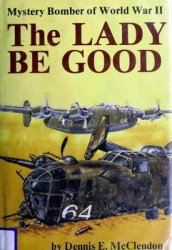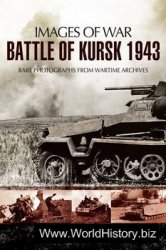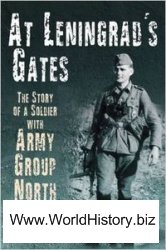As the sun slowly rose behind the encampment of Octavian, exposing one rectangle of cohort after the other like rows of playing cards dealt out across the long table of the Alexandrian plain, Antony climbed the circular stairs to the top of the Paneium. This odd cone of a hill was only one of two places in the city high enough to view the entire area, and from here Antony could survey the situation that awaited him that day.
As soon as he reached the top, he wished he had come alone. The half dozen men who had accompanied their leader up the hill fell silent behind him as if their windpipes had suddenly paralyzed. Before them lay a stunning panorama of Roman power stretching back upon land and sea until the images mercifully became difficult to make out in the dim light of the early-morning sky.
After taking in the fleets on the north side of the city and the army directly in front of him to the east, Antony passed his gaze over the canal and Lake Mareotis on the south side. He could see the line of supply ships Octavian had moved alongside his troops that were moored on the north side of the canal beginning at the front of the encampment. The lake itself held no opposition ships, just merchant vessels and pleasure barges lined up at the docks and a number of small Eg;yptian triremes cautiously patrolling the harbor, keeping their watch of Octavian’s movements from a distance.
Then he looked over toward the sea; there Antony could see the line of Octavian’s ships waiting for battle far outside the harbor in the sea and, just outside the reefs of the harbor, his own ships in a line facing them. Inside the harbor sat Cleopatra’s ships, sails on board, waiting for the battle to begin, the signal for the ships to move forward and slip through the channel, to raise the sails, and let the northwesterly winds move them swiftly to the Canobic mouth of the Nile. As soon as he escorted Cleopatra and the children to the docks and gave the word, Cleopatra’s men would light the fire at the Caesarium, and when the smoke went up, his forces would begin the battle. The fleet of Egyptian ships carrying Cleopatra and the children would slip away. As long as Octavian’s forces were engaged in battle, like at Actium, Cleopatra would have a head start on her way to the Ptolemaic Canal, and Octaviar would not be able to pursue the fugitives quickly enough to stop them.
The sights before them did not inspire Antony’s men. Their eyes took in the mass of men on the battlefield, the size of Octavian’s cavalry moving into their positions on the flanks of the infantry, and the array of warships aimed at a far smaller number of ships of Cleopatra and Antony’s much-reduced navy. A creeping dread spread collectively through their limbs. Their own infantry stood like statues on the low hills in front of the gates like an early-afternoon shadow of the troops facing them.
“Is it worth it, Antony?” asked Dercetaeus.
Antony turned and faced his men. They were the best of his cavalry. He had asked a lot of them in the past, and they had always come through for him. Even after Actium, they still stood by him.
“My friends.” Antony reached out his large hand and gently placed it on Dercetaeus’s right shoulder. “Our fight is not over until we have vanquished the enemy or he, us. At Actium, we separated our forces so as to have a chance at returning to battle, and this is the battle we saved ourselves for. I am sending Cleopatra and my children away, but I am remaining here with you, as my place is with my men. I do not care for my safety but for victory or an honorable death.”
The men remained silent and Antony could feel their commitment wavering.
“Come, men!” Antony exhorted. “We are warriors! Let us take tc our places and give Octavian his due! Our infantry and fleet await the signal. Come let us hurry to the Caesarium, get Cleopatra anc the children to their ship, and have the fire lit. As soon as the smoke starts upward, we will begin our battle! Last night we were victorious in routing their cavalry, and by Hercules, today we shall be victorious again!”
Antony grinned at Dercetaeus, clapped him once on his shoulder, and waved for his men to follow him. He hurried down the steps to the men and horses below, mounted his steed, and led the way to the temple.
The glorious Caesarium overlooked the Great Harbor. As he approached its walls, a bit of melancholy swept through Antony. Cleopatra had put a great deal of care and artistry into designing this beautiful tribute, and he had enjoyed strolling through its gardens. It wasn’t yet finished, and neither he nor Cleopatra would likely ever see its completion. He felt at least a comforting bit of satisfaction at the thought of what would go through Octavian’s mind when he saw the smoke billow up! His treasure, his treasure! All his future riches going up in smoke! How he would spur his men to attack, his eyes glued to his prize, his aim to storm the city and save his booty.
And, meanwhile, Antony gloated in his revelry, Cleopatra would be sailing off down the Nile; and when Octavian reached the Caesarium, he would find nothing among its ashes but charred wood.
They had arrived at the door of the monument, and Antony dismounted from his horse. He turned away from his steed, and as he did, he felt an agonizing blow to his midsection. His knees gave way and he felt himself sink to the ground. He looked up and saw
Dercetaeus, a sword in his hands bent from the effort of thrusting it underneath the mail, and Antony’s blood dripping from it. Behind him, Antony saw his men standing with their heads bowed.
He looked up and he saw tears on Dercetaeus’s cheeks.
“Why?” he managed to gasp. “Why?”
“Because this is folly, Antony, and we will fight for a purpose, but we will not fight to our deaths just for the life of your Egyptian queen. We are still young, Antony, and we don’t need to make the last hurrah of an old soldier. But,” said Dercetaeus, his voice breaking, “we will make sure all of Rome knows that you chose an honorable death and this is what will be related.”
Dercetaeus leaned over Antony’s body and grasped the handle of the leader’s sword. He pulled it from its sheath, scraped the flat side of the blade along the blade of his own bloody sword, and backed away from his dying commander. The blood of the great Roman on his own weapon would mean only one thing: he died an honorable death in the best tradition of his people.
A wave of anguish passed over Antony as he watched the men remount their horses, and dust choked him as the hooves kicked up the loose sands from the ground as they passed by. Then it became unnaturally quiet. He lay frozen and unmoving until he heard a cry. He grunted with the effort as he rolled his body over and gazed toward the top of the monument, the rising sun blinding him from behind the building. He could see a bobbing of heads at the window high up on the pylon left of the monument’s gate, and he knew that Cleopatra had been watching.




 World History
World History









